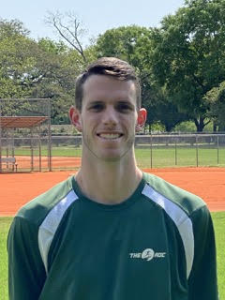Written By Paul Emory Putz, Ph.D. Assistant Director, Sports Ministry Program at Baylor University's Truett Theological Seminary
Looking Back
One of my favorite examples of the influence that a local church-based sports and rec & fitness ministry (SR&F) can have comes from the life of Bob Pettit. If you’re a basketball fan and history buff like me, you know Pettit is one of the NBA’s all-time greats. Over his eleven seasons with the Hawks (1954-1965), the 6’9” forward from LSU averaged over 26 points per game and won two MVP awards. And none of that would have been possible without a church basketball league. As a sophomore, Pettit was cut from his high school team. But with the encouragement of his pastor, he and a group of other young men formed a basketball league at Pettit’s church, St. James Episcopal. In his autobiography, The Drive Within Me, Pettit said the church league provided him with his first opportunity to play organized basketball. And as he played in the church league, his confidence and ability grew. By his junior season, he was ready to compete and star for the high school team. "I never forgot that the church saved my basketball career when it might have gone under without a ripple,” Pettit wrote in 1962. "And through the years I've come to learn that the church offers much, much more. I can't understand how a true believer in Christ can ignore the fellowship Christ instituted to continue His work on earth."
Looking Ahead
Of course, most church sports leagues aren’t going to produce a future hall-of-famer. But they can serve as a space to cultivate meaning, belonging, and community. They can provide an environment in which others are invited into deeper Christian commitment and growth.If we want church ministries to serve that purpose, we need to be intentional about our vision and plan. One helpful starting point for this is to learn from the past. For the last 150 years church leaders have been exploring how to integrate and include sports and recreation within the work of the church. By considering the theologies and strategies that have undergirded those efforts—as well as the major successes and failures—we can better understand our present moment and make wise choices about the future. In short, we don’t need to try to develop NBA All-Stars. But we should be thinking about how sports and recreation can help us reach and shepherd people well. Especially in our fast-changing cultural landscape. If you’re interested in exploring more of the history of local church SR&F ministry and discussing how it can inform the work of church and ministry leaders in the present, join me and Bob Schindler in February for a CEDE Sports webinar entitled: The History of Local Church SR&F Ministry - Looking to the Past to Navigate an Uncertain Future. You can either join CEDE Sports Webinar Mailing List for more info on this upcoming event or email rcurrie@cedesports.org for information on how to register for that webinar.And if you’d like to connect with me to learn more about my work as a historian with Baylor’s Faith & Sports Institute, you can follow me on Twitter (@p_emory) or check out my website (http://www.paulemoryputz.com).



 Q:
Q:  Q: How did you get involved with CEDE Sports?
Q: How did you get involved with CEDE Sports?